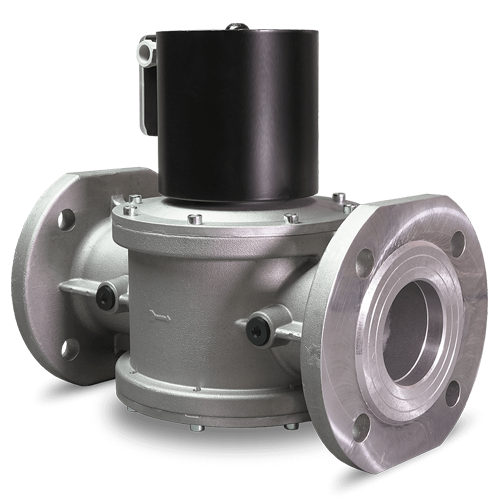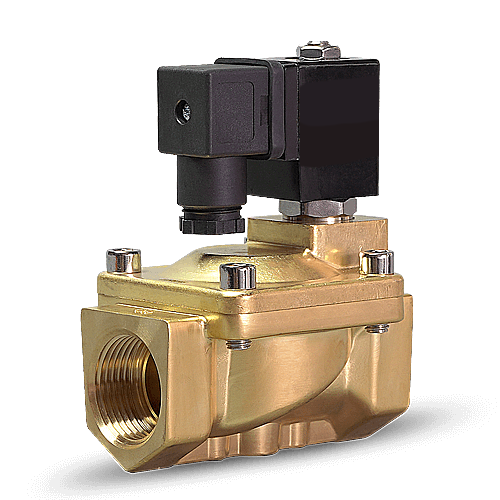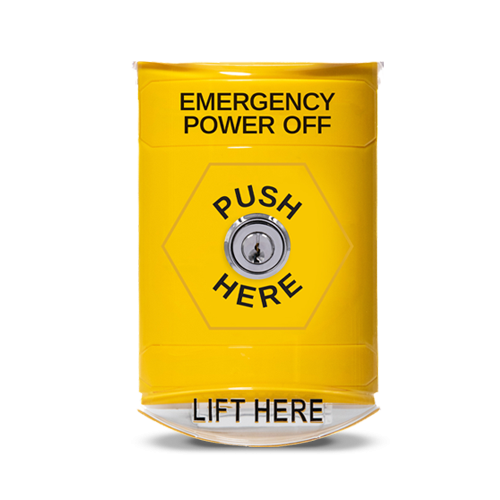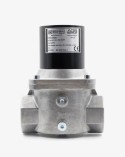Water solenoid valves are essential components in numerous applications where precise control of water flow is critical. Whether you’re managing potable drinking water or non-potable water systems, selecting the correct solenoid valve ensures efficiency, reliability, and compliance with industry standards like NSF61 for safe drinking water. Here’s a detailed guide to help you navigate through the selection process and find the ideal water solenoid valve for your specific application needs.
Understanding Water Solenoid Valves
1. Types of Water Solenoid Valves: Water solenoid valves are broadly categorized into direct-acting and pilot-operated valves.
-
Direct-acting valves: These valves use the energy of the solenoid to directly open and close the valve seat. They are suitable for applications where smaller flow rates and lower pressures are required, such as household appliances like washing machines and dishwashers.
-
Pilot-operated valves: These valves use the solenoid to control a pilot valve, which in turn controls the main valve. They are suitable for applications requiring higher flow rates and pressures, such as industrial equipment and irrigation systems.
2. NSF61 Approval for Potable Drinking Water: When selecting a solenoid valve for potable drinking water applications, ensure it meets NSF61 standards. NSF61 certification ensures that the valve materials do not leach harmful contaminants into the water, thus maintaining water safety and quality. Valves with NSF61 approval are commonly used in drinking water systems, water dispensers, and other applications where water comes into direct contact with humans.
3. Non-Drinkable Water Solenoid Valves: Solenoid valves used for non-potable water systems, such as irrigation, wastewater treatment, and industrial processes, do not necessarily require NSF61 approval. However, it is crucial to select valves made from materials compatible with the specific properties of the non-drinkable water being used. For example, valves used in wastewater treatment facilities must be resistant to corrosion and capable of handling chemicals present in the wastewater.
4. Different Applications for Each Type:
-
Potable Drinking Water Applications: In addition to meeting NSF61 standards, solenoid valves used for potable drinking water should be durable, reliable, and capable of maintaining precise control over water flow. They are commonly found in water purification systems, beverage dispensers, and residential plumbing.
-
Non-Drinkable Water Applications: Solenoid valves used for non-potable water applications vary widely depending on the specific requirements of the system. For example, in agricultural irrigation systems, solenoid valves need to handle varying water pressures and flow rates efficiently. In industrial applications, solenoid valves may need to withstand high temperatures, corrosive environments, and harsh chemicals.
5. Factors to Consider When Choosing a Water Solenoid Valve:
-
Valve Size and Flow Rate: Consider the required flow rate and ensure the valve size matches your system's requirements to avoid inefficiencies or pressure drops.
-
Pressure and Temperature Ratings: Check the valve’s maximum pressure and temperature ratings to ensure compatibility with your application’s operating conditions.
-
Material Compatibility: Select materials that are compatible with the type of water being used (potable vs. non-potable) and resistant to corrosion and chemicals present in the water.
-
Voltage and Electrical Specifications: Ensure the solenoid valve operates on the correct voltage and has the necessary electrical connections for integration into your control system.
Conclusion
Choosing the right water solenoid valve involves considering factors such as NSF61 approval for potable drinking water applications, as well as the specific requirements of non-drinkable water systems. By understanding the types of solenoid valves available and their applications, you can ensure optimal performance, longevity, and compliance with regulatory standards. For a wide selection of high-quality water solenoid valves that meet diverse application needs, visit ValveShop.us. Whether you’re upgrading residential plumbing or managing complex industrial processes, selecting the right solenoid valve is crucial for maintaining efficiency and reliability in your water systems.








